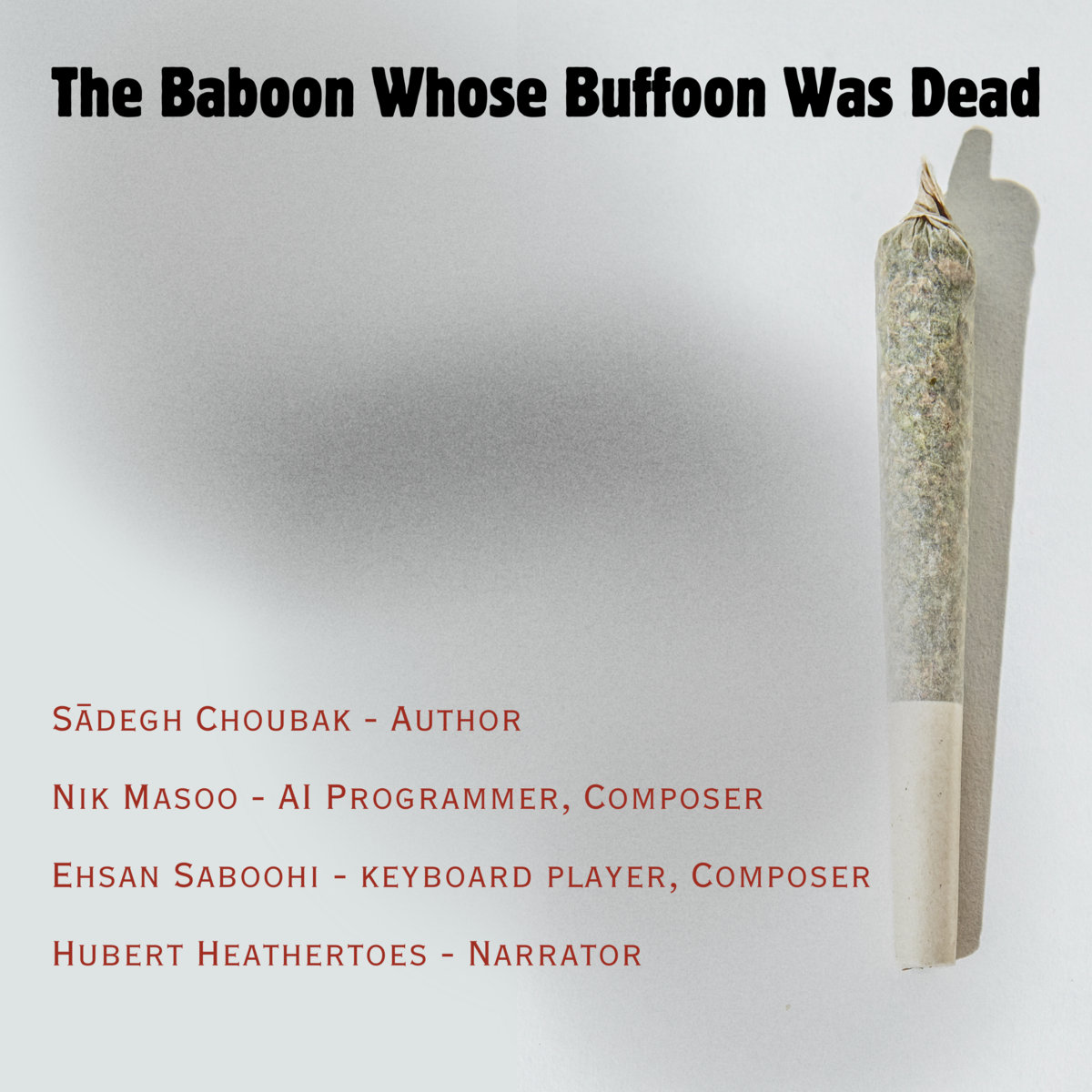Unter dem Titel “The Baboon Whose Buffoon Was Dead”, zu deutsch “Der Pavian, dessen Hanswurst tot war”, erscheint ein neues Album von diesmal aus Ehsan Saboohi, Hubert Heathertoes und dem Maetre selbst bestehenden Nik Massoo Trio. Das auf einer Dichtung des aus dem Umfeld des berühmten Sadeq Hedayat stammenden Autors Sādegh Choubak in englischer Übersetzung von Peter Avery und Kompositionen für Programming und Keybord basierende Werk ist eine spannende psychoakustische Rezitation mit allerlei cinematischen Sounds in drei Akten, bei denen die Musik im finalen Akt der Geschichte beinahe den vorderen Bühnenrand streitig macht, letztlich aber mit ihr zu einer ausdrucksintensiven Einheit verschmilzt. Das Album erscheint im Dezember digital bei Post Orientalism Music. 
“Sadeq Chubak (born August 5, 1916, Būshehr, Iran—died July 3, 1998, Berkeley, California, U.S.) was an author of short fiction, drama, and novels, one of the leading 20th-century writers of Iran. Chubak’s short stories are characterized by their intricacy, economy of detail, and concentration upon a single theme, causing some to compare them to Persian miniature paintings. Chubak grew up in Shīrāz, Iran, and graduated from the American College of Tehrān in 1937. His literary mentor was Sadeq Hedayat, a well-known Iranian author, and he was also influenced by the writings of American authors Henry James, William Faulkner, and Ernest Hemingway. Chubak developed a style of his own, however. Writing in the colloquial language, he captured moods successfully and told his tales with unmistakable realism. Chubak’s best-known works include Khaymah-e shabāzī (1945; “Puppet Show”), a volume of short stories that is divided into 11 sections, each of which portrays an aspect of daily life; ʿAntarī keh lūṭiyash morda būd (1949; “The Baboon Whose Buffoon Was Dead”); the satirical play Tūp-e lāstīkī (1962; “The Rubber Ball”); and two novels, Tangsīr (1963) and Sang-e ṣabūr (1967; “The Patient Stone”). Chubak also translated a number of works from English into Persian, including Lewis Carroll’s Alice’s Adventures in Wonderland and Through the Looking-Glass.” (Post Orientalism)
